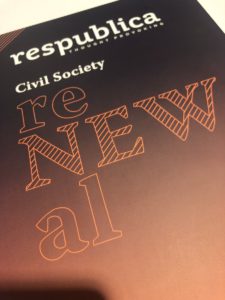 After three decades of its functioning in a democracy, civil society in Central Europe has found itself in the need of contemplating its next direction, notes analyst Oľga Gyarfášová.
After three decades of its functioning in a democracy, civil society in Central Europe has found itself in the need of contemplating its next direction, notes analyst Oľga Gyarfášová.
There are several reasons for this: political regimes, mainly in Hungary and Poland, have turned NGOs into their enemies. They keep finding various ways to complicate NGOs’ lives, and they attack other pillars of open society – political freedoms, independent media, and minority rights, she writes, citing several studies by Central-European experts on Civil Society Renewal, recently published by the Res Publica Foundation and Visegrad/Insight.
Authors of the study point to crowd-funding campaigns, the “Uberisation” of civil society, social campaigns and protests on social networks (Black Monday or #MeToo) as examples of how new technologies penetrate civil society, notes Gyarfášová, a sociologist at Bratislava’s Comenius University and a former Reagan-Fascell Fellow at the National Endowment for Democracy.
In Hungary, as in Poland, “the delegitimisation of civic organisations takes place via a parallel structure that enjoys the government’s support – the so-called Civic Union Forum – a typical example of a governmental NGO, so-called GONGO that is privileged in terms of the distribution of public resources,” she adds. RTWT







